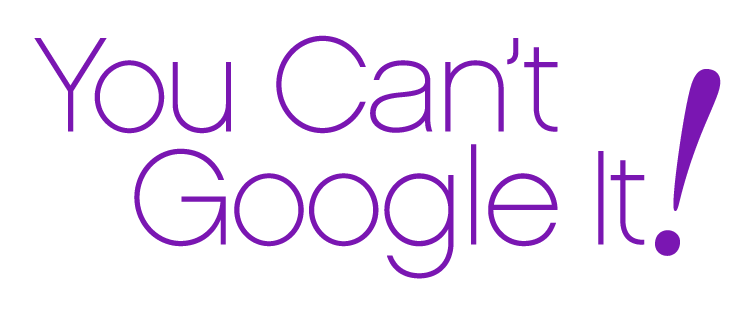Winning the DEI & Belonging Challenges (Part Two)
/To achieve true inclusion and a sense of belonging, busy professionals and other knowledge workers need to integrate cross-generational connection and cross-cultural engagement seamlessly into everyday behaviors and activities, rather than siloing them as projects or tasks.
Return to office and hybrid schedules now and looking forward post-pandemic are causing additional or stronger concerns such as:
Uncertainly about the changing work experience after a long period when everything was remote and virtual
How much individuals would have control over their work schedule and location
What the social environment in the office would be like and how to navigate the awkwardness and lack of clarity on what’s acceptable to ask, talk about, where and when
Caretaking for children, pets, and relatives with illnesses
Surveys report high levels of anxiety about returning to the workplace including both physical and mental health fears and concerns and uncertainties about who is vaccinated or not and how that should affect their behaviors. A higher percentage of employees than before the pandemic in many typically office-based industries have been contemplating changing their job because it’s not conducive to mental wellbeing. One survey found that half of employees don’t think their organization has done enough to address issues of mental health.
Here are some key wellness considerations with clear generational impact.
The definition of wellness benefits during this time has expanded to include financial benefits (such as disability, pet insurance, paid and unpaid leave) and psychological safety which have different degrees of desirability and need among generations and lifecycle.
Empathy and trust among the generations have been missing to a greater degree, given less opportunity to establish human relationships during the pandemic, a situation which could continue with hybrid and remote working arrangements.
·The loneliness epidemic is especially prevalent among young workers.
Younger generations feel greater stress leading to mental illness/depression.
Cited in my interviews with members of cross-generational teams and in my book, You Can’t Google it! – The Compelling Case for Cross-Generational Conversation at Work, were these deficits and disadvantages with a lack of cross-generational work conversations:
“Stress and health problems as well as reduced productivity and turnover costs that have negative effects on financial results.”
“Symptoms might be frustrations, complaints about colleagues’ work habits, withholding information necessary for continual successful client relationships, trouble retaining valuable personnel, and lack of creativity and innovation that results in loss of competitive edge.”
Suggested actions for individuals and leaders
Individuals need to take a lot of responsibility as far as self-care, knowing when to ask for support, and having realistic expectations. And employers have to step up efforts.
Here are some new habits leaders should encourage individuals to cultivate:
Integrate connection and engagement seamlessly into everyday behaviors and activities.
Give younger professionals and staff a role in crafting solutions, including the psychological safety to talk about their feelings.
The range of best practices for employers to consider incorporating cover:
Behaviors to be transparent, engaged and accountable for their actions and in their communications, which need to be frequent and empathetic
Clarity in expectations expressed in written policies, including flex policies and retention
How they will provide parental resources and support as well as wellness and mental health resources for all personnel
Using data for measurement and justify decision-making
Bringing personnel into the conversation and decision-making about remote, back to the office and hybrid work systems that can be stressful on work-life and family finances
And the always controversial need to rethink compensation systems to reflect priorities and deserved recognition aligning with the professed wellness and other goals
These practices, if conscientiously followed, can reduce stress and employer/employee disconnect at all levels.
Both with going back to the office for work and hybrid arrangements, it’s important for employers and professional staff to reimagine how and where work gets done best together and plan for intentional interaction. People want to be able to make their own choices. And they must consider first what’s best to meet the needs of the ultimate client, whether that is an external paying client or internal client. For sustainable business that promotes wellness as well as financial profit, the human experience must be at the center of the work design.
Fasten Your Seat Belts
The scientists tell us that there will be another pandemic at some undetermined time in our lifetimes, even if and when the current one is pretty much wiped out or at least made tolerable to live with given vaccines.
Adjusting to a better life of hope and continuing to thrive are both immediate and long-range goals. We have changed, work and the work environment has changed. We are in the period of “a big experiment,” trying out combinations and permutations of the old, new and the as of yet determined and developed. We will need a more flexible mindset than in the past.
The keywords going forth are: Connection, Self-Awareness, Adaptability, Gratitude, Empathy. Those traits and behaviors will make for better lives and better professional performance.
Call to Action: Given a war to attract and keep talent and resignations top of mind for many people, there truly is not time to waste to adopt the recommended behaviors and cultural changes. Share this article and thoughts with others. If you need help in making the case or implementing change in this prime window of opportunity, contact me at pwhaserot@pdcounsel.com.
© Phyllis Weiss Haserot 2021


